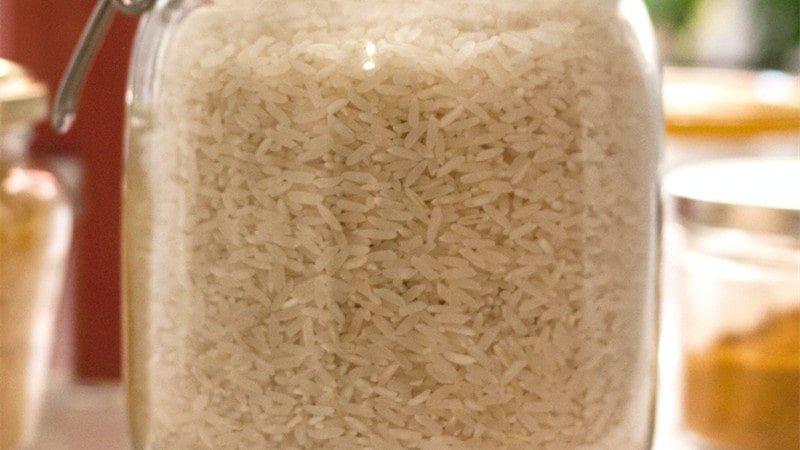Do you have an office job and spend all your days slumped in front of the computer? If so, you might be familiar with different degrees of discomfort and tightness in your upper back after a long day at work. And if shoulders are your weak spot, don’t worry because this article’s got you covered.
Read on to find more details on the troubling spasm in your shoulder. What causes it, and how do you even know you have it? More importantly, is there anything you can do to relieve the pain in your shoulders?
What Is Spasm in Your Shoulder?

In case you frequently experience pain in your upper back and shoulders, you might be wondering whether that’s a normal thing. Are the sore muscles between your neck and arms in fact spasms — and what is a spasm, anyway?
This condition generally refers to any involuntary movement in your muscles, resulting in their sudden contraction. And when your muscle stiffens, chances are you won’t be able to move it for some time. That’s because stiff muscles and joints can sometimes be very sore. Also called muscle cramps, they can affect your thighs, calves, arms — to name but a few.
But when it comes to your back and shoulder muscles, they help support your whole skeletal system. Also, they are the ones taking part in pretty much all the movements you make, either purposefully or involuntarily. For that reason, sore shoulder muscles can be extremely unpleasant as they might completely disrupt your regular functioning.
The rhomboid muscles in your upper back have given another name to shoulder spasms — rhomboid strains. These are the muscles connecting your shoulder blades to your spine.
And when these guys tear or stretch, what you’re left with is a spasm in your shoulders. But to differentiate between slight discomfort and spasming shoulders, consider the causes and symptoms of shoulder spasms first.
What Are the Causes of Spasm in Your Shoulder?

1. Muscle Fatigue and Overuse
Your shoulder muscles can easily get tired when you overuse them, leaving you in pain. So, you might be mistaken if you believe that the causes of shoulder spasms can’t be regular, everyday things. More often than not, this condition results from overworking your shoulder muscles.
For example, think about the last time you’ve carried a backpack over one shoulder. Chances are, putting too much weight on your shoulder resulted in a sudden muscle strain.
If you’re someone who loves long phone conversations, you may have also experienced spasming shoulders from keeping your arm in the same position for hours. The same thing might happen if you deliberately stiffen your upper back muscles when you’re cold.
Believe it or not, similar silly-sounding situations can be the ones to blame for the unbearable pain in your shoulders. Like yourself, your shoulder muscles might not work well under pressure, especially if you force them to stay in one position for too long.
2. Muscle Injury
As for other culprits of shoulder spasms, the most common ones are damage to the muscles in your shoulders. An acute muscle injury can result in a prolonged feeling of discomfort and pain.
In some cases, it can stem from chronic muscle imbalance. But this kind of shoulder strain can also happen quickly when your muscle suddenly contracts while moving.
The same thing regularly happens to athletes who overtrain their muscles without warming up. Sudden movements can lead to their joints and muscles straining more easily.
That’s because warm-up exercises raise your body temperature and increase the blood flow to your muscles. Not paying enough attention to this will undoubtedly put you at a higher risk of injury and spasms.
3. Dehydration
It stands to reason that not drinking enough water can have all kinds of negative consequences on our overall health. Especially when it comes to your skin and kidney function, keeping yourself hydrated is crucial.
But up until now, you may not have been aware that dehydration negatively affects your muscles, too. The thing is, not drinking enough fluids can lower your blood pressure.
By reducing the passage of your blood, dehydration prevents your muscles from getting enough blood supply. It also affects thermoregulation, making your muscles more prone to injury.
Without enough fluid, the muscles in your shoulders will also lose electrolytes and become more sensitive. Because of that, shoulder spasms can occur more frequently when your body is dehydrated.
4. Low Vitamin D Levels
Thanks to the ongoing pandemic, you might have only recently noticed the importance of vitamin D for your metabolism. Your body produces this compound when your skin gets exposed to sunlight.
Otherwise, you can increase your vitamin D levels artificially or through food. But what happens to your muscles if you suffer from vitamin D deficiency?
Insufficient amounts of this vitamin will weaken your muscles and make them sore. In children, vitamin D deficiency can even trigger a disease called rickets. One of the first signs can be intermittent muscle spasms (tetany) due to low calcium levels.
As it turns out, getting enough sunshine and eating enough dairy products might be crucial for the well-being of your muscles.
5. Bursitis
You probably haven’t heard about bursae — the cushioning sacks near your joints filled with fluid. You can find the major bursae in your hips, knees, elbows, and shoulders. Their function is to lower the friction among your body tissues. If you find the story about bursae a bit discomforting, wait until you hear about bursitis.
This inflammation stems from fluid collecting in bursae due to overuse or injury. And because these sacks help your muscles move smoothly, their inflammation can restrict your movements. Therefore, you might not be able to lift your arm without feeling pain. You may also notice swelling around the affected area.
6. Nerve Damage
In most cases, shoulder spasms shouldn’t worry you much. If you know for sure about your issues with anything from above, you’re probably already relieved. But the truth is, the final spasm cause on our list might sound a bit more serious. That’s because your shoulder spasms can turn out to be a symptom of an underlying neurological condition.
When you think about it, it makes perfect sense. Made up of more than 100 billion nerves, your brain controls your entire body. The same goes for your muscles, which move based on the commands coming from your brain. And if you happen to suffer from neuropathy, it might result in your shoulder muscle twitches or other muscle spasms.
What Are the Symptoms of Spasm in Your Shoulder?

Do you know that weird feeling you get when your eyelid twitches? Believe it or not, that also results from muscle spasms. And when it comes to your shoulder muscles strains, the situation is pretty much the same. In most cases, you’ll be able to feel that the muscles in your shoulder are moving without your will.
The truth is, this symptom usually lasts only for a few seconds, but you should be able to notice it. If you’re lucky, you might even catch the muscle in your shoulder pulsating when you pay close attention. That’s when you’ll know for sure your shoulder-muscle situation seems suspicious.
Also, beware that not all shoulder spasms must be accompanied by unbearable pain. In some cases, you’ll only notice slight discomfort in the area around your shoulder and nothing more.
But sometimes, you might be able to feel your muscles contracting on their own. This feeling can be extremely unpleasant, especially when any movement starts to cause you pain.
These cramping sensations are more typical for calf muscle spasms, but you can also notice them in your upper back. The good news is, the cramping usually stops after a couple of minutes.
Still, you might experience shoulder muscle pain even after the twitches end. But arguably the most severe symptoms occur when there’s an underlying neurological condition, and they include:
• pain in your neck, back, or head
• muscle weakness
• slow or restricted movements
• tremors
• paralysis
• double vision
How to Relieve Your Shoulder Spasm: 5 Ways

1. Medication
Do your spasming shoulder muscles seem too sore all of a sudden? If so, the rising level of pain might be preventing you from functioning altogether. In this case, you’ll need to address the symptoms of your shoulder spasm with proper medication. You can opt for over-the-counter painkillers like ibuprofen or aspirin.
These drugs will be ideal for fighting inflammation and making your shoulder feel as good as new. With their help, your muscles won’t feel sore or stiff anymore. Because of that, you’ll likely be able to lift your arm as your movements won’t be restricted.
But if these anti-inflammatory medications don’t help, you might need to consult your doctor to prescribe you something more potent.
2. Ice
Especially if you’ve noticed some swelling, it may have already occurred to you to apply ice to the affected area. As you’re about to see, this method can prove quite efficient for fighting the symptoms of shoulder spasms.
That’s because ice, like medications from above, can also help reduce inflammation. And by numbing the sore spots around your shoulder, its coolness will relieve your pain altogether.
You can pack a bunch of ice cubes in your pillowcase or a piece of cloth. Apply your cold remedy to the sore area on your shoulder for 5-10 minutes. But pay attention not to let ice get into direct contact with your skin for too long. Otherwise, you might be at risk of catching frostbite.
3. Heat
Another way to treat shoulder spasms at home is warming up the painful area. If your condition doesn’t seem too severe but has been around for a few days, this method should help you.
You might already know that heat opens up blood vessels and helps assist the healing process. Think about all the times a warm towel has helped with your period cramps (or someone you know).
A possible solution for your shoulder spasm aches would be to take a mild hot shower. Apply warm water directly to your sore area for 5-10 minutes. You can also use an electric hot pack set on medium heat. But whatever you do, remember not to apply heat to a recently injured spot.
4. Massage
Probably one of the easiest home remedies for shoulder spasms is massaging the area around the sore muscle. Especially if you have someone to give you a hand, you might be able to relieve pain very quickly.
By applying pressure to your painful shoulder, the muscles inside it will relax. As a result, the possible discomforting contractions will also stop.
But note that massaging also helps with your nerves. When a muscle contracts, the nerves around it might compress, causing you pain. So, the best thing to do is knead your sore muscles and the surrounding area to improve their flexibility. You can also put a tennis ball in a sock and gently roll it over your shoulder.
5. Stretches
Last but not least, all sorts of home workouts can help you relieve your shoulder spasm pain. Some exercises that target your upper back, neck, and shoulders will prove quite effective. But note that you might need to try out several of them until you find out which ones work best.
For example, you can start by doing the neck release exercise. Just lower your chin until you feel your neck has stretched. Then, tilt your head to one side and make a circular movement with your neck until you’ve reached the starting position. You can repeat this on your opposite side and even hold that position for one minute.
Another home exercise that might help is chest expansion. It will help you retrieve your regular range of motion in your shoulders by promoting muscle flexibility. While occupying a standing position, hold a band, towel, or a ball in your hands.
Move the said object gently to the back by slowly raising your arms and bringing your shoulder blades closer together. Finally, try to hold this position for up to thirty seconds. Repeat the exercise 3-5 times if you feel like you’re making progress.




